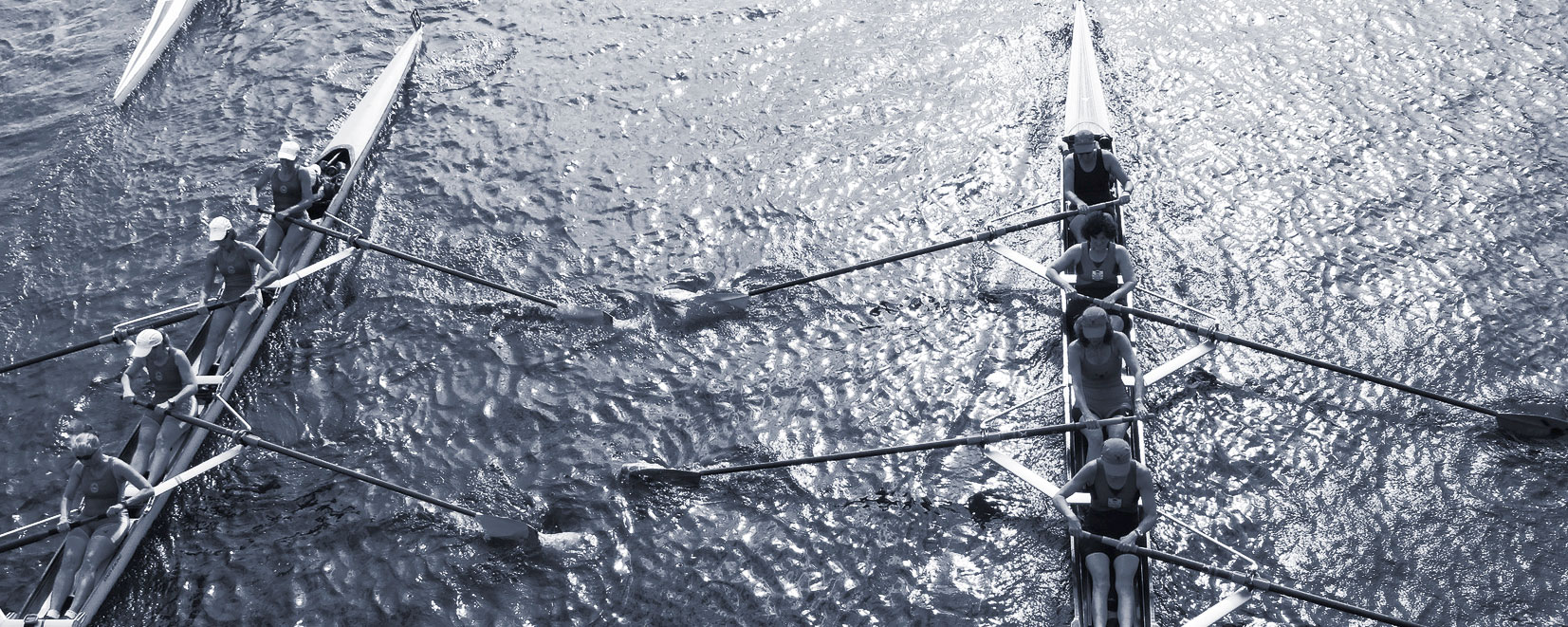Cascadilla Boat Club (CBC) was established in 1977 as a way to spread rowing outside the bubble of university and college, allowing any member of the community to get into the sport. The club today is a bustling center of rowing activity from before sunrise to after sunset, with members ranging from early teens to rowing veterans well into their later lives. It’s no wonder the club has become so interwoven with the Ithaca community. In the case of IHS, CBC is perhaps well-integrated enough to be considered a school sport.
In the past, CBC has often been present during the school’s pep rallies, being cheered for by the crowd. And friendly games of capture the flag or ultimate frisbee between CBC and the IHS cross country team are always a blast. This year, however, CBC was awkwardly absent from the school team parade, and there was no representative for the boat club during the club section of the festivities. Some never noticed the change; others were noticeably irritated about the matter. This raises the question: should CBC be considered a school sport, or does non-affiliation, however awkward and upsetting it can be at times, have its decisive benefits?
To answer this question, we have to look at CBC as a whole. CBC is an organization that originally had no junior program and was meant to include all parts of the community, not just IHS students. The varsity and novice teams are made up of rowers from not just IHS, but LACS, Lansing, and New Roots as well. The modified team has members predominantly from Boynton and DeWitt, and as far as the masters part of the club is concerned, the only thing it has in common with IHS is general geographical location.
To say that CBC is basically an IHS club, or is close enough to being one, is absolutely incorrect. It’s like if your extended family (aunts, uncles, grandfathers, grandmothers, cousins, etc.) all lived in town and they all went to the same grocery store on a semi-regular basis to the point where your family members outnumbered the non-family members in the store on some days, and then you got the idea to proclaim that said grocery store was the “family grocery store.” You’d not only be wrong, you’d piss off everyone else who went to that store.
Is it worth it to be wrong? A vocal group of CBC members were less than pleased about being excluded from the IHS pep rally. CBC being considered a school club would also make recruiting freshmen a lot easier, as representatives from CBC could be present at the club fair during the first day of school.

But the answer is, ultimately, no. In addition, the benefits we get from being considered a school club are a little double-edged themselves. As far as the pep rally goes, it’s a little exclusive for members of CBC who don’t attend IHS. Imagine if your sport was being represented in the Ithaca Parade, but you could only be part of the parade and thus represent your sport if you were a certain height or had a certain hair color (arguably equally uncontrollable factors as where you go to school during your high-school years). You would, understandably, feel a little put out. And with regards to freshman recruiting, the idea of actively sending representatives to some schools and not to others in terms of trying to find possible members kind of spits in the face of the reason CBC was founded in the first place—to allow equal opportunity for members of the larger community to access the sport of rowing.
There’s no reason the friendly games between sports teams should end, and CBC will always be a close part of the IHS community and student body, but maybe getting used to not being in the pep rally wouldn’t be a bad thing. In the best interests of both CBC and IHS, CBC’s would-be affiliation as a school club or sport is a bad idea.

